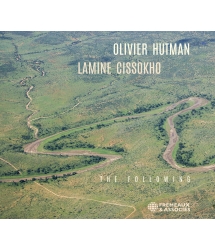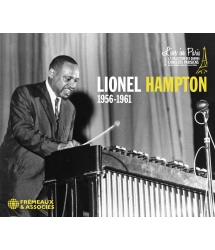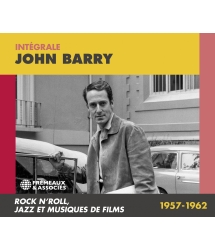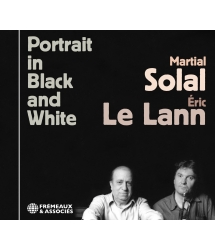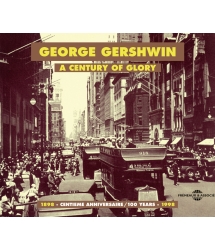- Our Catalog
- Philosophy
- Philosophers of the 20th century and today
- History of Philosophy (PUF)
- Counter-History and Brief Encyclopedia by Michel Onfray
- The philosophical work explained by Luc Ferry
- Ancient thought
- Thinkers of yesterday as seen by the philosophers of today
- Historical philosophical texts interpreted by great actors
- History
- Books (in French)
- Social science
- Historical words
- Audiobooks & Literature
- Our Catalog
- Jazz
- Blues
- Rock - Country - Cajun
- French song
- World music
- Africa
- France
- Québec / Canada
- Hawaï
- West Indies
- Caribbean
- Cuba & Afro-cubain
- Mexico
- South America
- Tango
- Brazil
- Tzigane / Gypsy
- Fado / Portugal
- Flamenco / Spain
- Yiddish / Israel
- China
- Tibet / Nepal
- Asia
- Indian Ocean / Madagascar
- Japan
- Indonesia
- Oceania
- India
- Bangladesh
- USSR / Communist songs
- World music / Miscellaneous
- Classical music
- Composers - Movie Soundtracks
- Sounds of nature
- Our Catalog
- Youth
- Philosophy
- News
- How to order ?
- Receive the catalog
- Manifesto
- Dictionnary











- Our Catalog
- Philosophy
- Philosophers of the 20th century and today
- History of Philosophy (PUF)
- Counter-History and Brief Encyclopedia by Michel Onfray
- The philosophical work explained by Luc Ferry
- Ancient thought
- Thinkers of yesterday as seen by the philosophers of today
- Historical philosophical texts interpreted by great actors
- History
- Books (in French)
- Social science
- Historical words
- Audiobooks & Literature
- Our Catalog
- Jazz
- Blues
- Rock - Country - Cajun
- French song
- World music
- Africa
- France
- Québec / Canada
- Hawaï
- West Indies
- Caribbean
- Cuba & Afro-cubain
- Mexico
- South America
- Tango
- Brazil
- Tzigane / Gypsy
- Fado / Portugal
- Flamenco / Spain
- Yiddish / Israel
- China
- Tibet / Nepal
- Asia
- Indian Ocean / Madagascar
- Japan
- Indonesia
- Oceania
- India
- Bangladesh
- USSR / Communist songs
- World music / Miscellaneous
- Classical music
- Composers - Movie Soundtracks
- Sounds of nature
- Our Catalog
- Youth
- Philosophy
- News
- How to order ?
- Receive the catalog
- Manifesto
- Dictionnary
ENREGISTREMENTS HISTORIQUES 1885-1947 - JAZZ & MUSIQUES DE GENRE
Ref.: FA5286
EAN : 3561302528625
Artistic Direction : Jean-Yves Patte & Claude Colombini
Label : Frémeaux & Associés
Total duration of the pack : 1 hours 3 minutes
Nbre. CD : 1
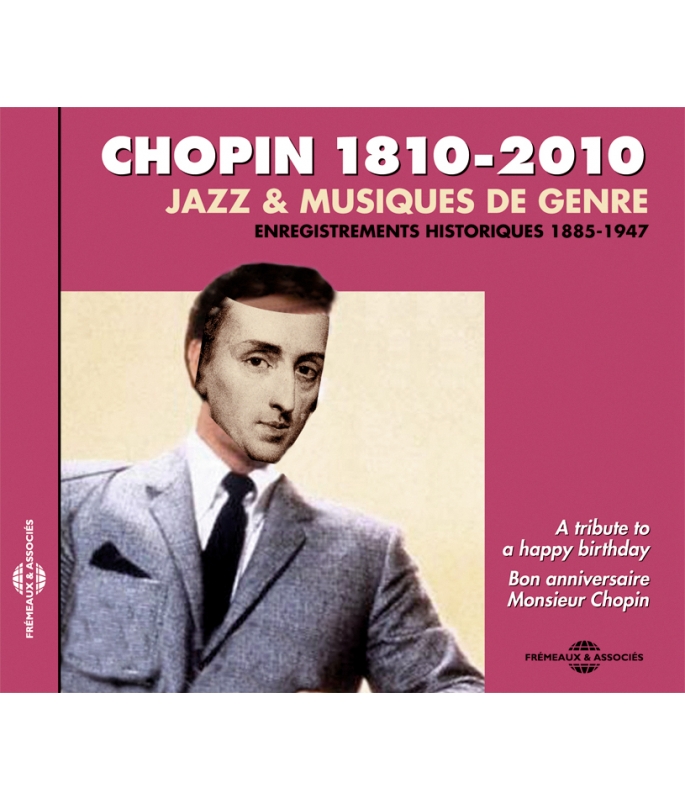
ENREGISTREMENTS HISTORIQUES 1885-1947 - JAZZ & MUSIQUES DE GENRE
ENREGISTREMENTS HISTORIQUES 1885-1947 - JAZZ & MUSIQUES DE GENRE
“On the occasion of Frédéric Chopin's Bicentenary (born 1810, died 1849), there was no way we could miss blowing out his 200 candles with him! What would Chopin have thought of these musical birthday-presents from the 19th and 20th centuries? “Respectful” performances of the Master’s compositions dominate every tribute that is paid to Chopin today, but why not also take a look at the creative richness and widely-varied genres that his work inspired? From music-boxes to Swing, and not forgetting Romance or Musicals, this is the career of a genius. Thank you, Monsieur Chopin, and Happy Birthday!” Jean-Yves PATTE

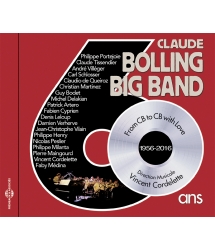
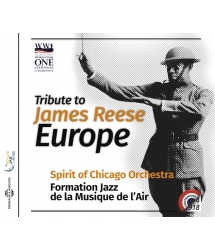
-
PisteTitleMain artistAutorDurationRegistered in
-
1ChopinataClément Doucet00:03:081927
-
2Waltz n°2 In C Sharp MinorHazel Scott00:03:011946
-
3Polonaise Fox TrotCarmen Carvallaro et son Orchestre00:02:581947
-
4Minute WaltzJohn Kirby00:02:321939
-
5A Song To RememberFreddy Martin et son OrchestreSammy Cahn00:03:151945
-
6Valse brillanteOrchestre Kostelanetz00:04:151946
-
7Fantaisie impromptuOrchestre Kostelanetz00:04:391946
-
8Polonaise (orchestral)Al Goodman et son Orchestre00:03:371945
-
9O Heart Of My CountryAl Goodman et son OrchestreJohn Latouche00:03:491945
-
10MazurkaAl Goodman et son Orchestre00:03:241945
-
11Just For TonightAl Goodman et son OrchestreJohn Latouche00:03:411945
-
12Now You Know Your Face By HeartAl Goodman et son OrchestreJohn Latouche00:03:371945
-
13The Next Time I CareAl Goodman et son OrchestreJohn Latouche00:03:531945
-
14I Wonder As I WanderAl Goodman et son OrchestreJohn Latouche00:03:271945
-
15FinaleAl Goodman et son OrchestreJohn Latouche00:03:241945
-
16Intimité: Mélodie sur la Troisième étude de ChopinNanon VallinAndré de Badet00:04:101938
-
17Love's Messenger Waltz: Messaggero AmorosoAmélita Galli Gurci00:02:431909
-
18NocturnoMaria Michaïlowa00:03:161904
-
19Valse du Petit ChienBoite à musique Stella00:00:591885
Chopin 1810-2010 Jazz et musiques de genre
CHOPIN 1810-2010
JAZZ & MUSIQUES DE GENRE
ENREGISTREMENTS HISTORIQUES 1885-1947
A tribute to a happy birthday
Bon anniversaire Monsieur Chopin
Toute la vie de Frédéric Chopin (1810-1849) a été dominée par le piano. En de rares occasions il s’est tourné vers la voix, le violoncelle et l’orchestre… mais ce ne sont là que d’exceptionnelles incursions… Au travers de son instrument de prédilection, il a souvent chanté ses souvenirs de Pologne, ses traditions musicales magnifiées et ses douleurs aussi. La Pologne, partagée, écrasée après l’Insurrection de 1830-1831 est un pays en souffrance et nombre de polonais ont été contraints de choisir l’exil pour survivre au désastre… Et puis il y a l’art de Chopin, sa manière, si personnelle, qu’on ne sent pas “le canon sous les fleurs” (R. Schumann).
Tout le XIXe siècle vit sous ce charme. Les témoignages les plus anciens de ce disque en portent la manière… un peu mièvre dans son expression. Mais l’invasion de la Pologne en 1937, invasion déclenchée par Hitler qui glace le monde d’effroi, puis le martyre enduré par cette nation durant la seconde guerre mondiale, changent le regard que les musiciens portent sur l’œuvre de cet enfant de la Pologne, qui, à cause de ses origines françaises peut-être – son père Nicolas Chopin était d’origine lorraine –, a choisi de venir, en 1831, s’installer à Paris. On “redécouvre” tout ce que sa musique porte de sursauts, d’élans révolutionnaires, à peine voilés souvent par une figure aimable. Un visage qui plaque un sourire sur sa souffrance. La mièvrerie s’efface… Alors, le Jazz, le swing, la comédie musicale peuvent s’emparer de son œuvre. Là encore, c’est un triomphe. Non seulement elle témoigne de son extraordinaire adaptabilité, mais surtout elle marque le souvenir éclatant d’une Pologne une fois de plus meurtrie. De nouveau sous la joie d’une musique libre se rejoue la partition d’une liberté confisquée qui ne veut, ne peut se résigner. Jean-Yves Patte
The whole life of Frédéric Chopin (1810-1849) was dominated by the piano. There were rare occasions when he composed for voice, cello or the orchestra… but these were indeed exceptional. At the keyboard of his favourite instrument, his song often turned to Poland: not only his memories of it, but also the country’s magnificent musical traditions, and its sorrows, too: divided and crushed after the Insurrection of 1830, it was a country of suffering, and many in Poland were forced into exile to survive the disaster… And then there is the art of Chopin, its manner: it was so personal that no-one could sense “the cannon beneath the flowers” (R. Schumann). The 19th century lived entirely under its charm, and the most distant evidence on this recording contains that way of life… almost insipid in expression. Yet, first the 1937 invasion of Poland unleashed by Hitler – filling the world with icy dread – and then the martyrdom endured by that nation during the Second World War, changed the way that musicians approached the works of this child of Poland who, perhaps due to his French origins – his father Nicolas Chopin was from Lorraine – settled in Paris in 1831. There, people “rediscovered” everything carried in his music: its sudden fits of energy and revolutionary momentum, often barely concealed by an outwardly pleasant appearance, a face that placed a smiling veneer on the suffering. The insipidness disappeared… From then on, jazz, swing and musical comedies could take hold of Chopin’s work. Again, a triumph. Not only did this show Chopin’s extraordinary adaptability; above all, it brought Poland, ravaged once more, to the front of people’s minds. Bathed in the joy of music that was free, the scores of Chopin were again performed as symbols of a confiscated freedom that would not, could not, be relinquished.
Adapted from the french text of Jean-Yves Patte by Martin Davies
1. Chopinata (Clément Doucet) 3’06
Clément Doucet, piano solo - Columbia D 13009 / L 269, Londres, 1927 Né en Belgique, Clément Doucet a été très tôt initié au jazz en Amérique. Quel plaisir alors de mêler aux vieilles sources européennes des rythmes nouveaux. Un premier réveil sans doute pour Chopin, dont tous les apprentis pianistes avaient les oreilles – pardon : les doigts – rebattus !
Born in Belgium, Clément Doucet was introduced to the joys of jazz in America. What a pleasure it was, then, to bring new rhythms to the ancient sources of Europe! It was probably the first sudden awakening of Chopin, who’d flattened the ears, sorry, the fingers, of every apprentice at the piano!
2. Waltz n°2 in C sharp Minor (Argt H. Scott) 2’59
Hazel Scott, piano - Disque Signature 196, New-York, 1946 Un détournement magistral ! Un piano qui hurle une joie de vivre qui, malgré la maladie et les souffrances ne faisaient jamais défaut à Chopin. Une forme de clin d’œil à celui qui, en son temps, aimait à parodier pour ses amis les musiciens en vogue ! Sait-on bien que pourtant que Chopin n’admettait que lui seul puisse “déranger” sa musique ?
A magnificent diversion! A piano that screams joie de vivre; it’s a joy which, despite illness and pain, was never absent in Chopin. This piece can be seen as an acknowledgement of the man who, in his day, loved to parody fashionable musicians for his friends. Even so, did anyone know that Chopin never allowed anyone but himself to “disturb” his music?
3. Polonaise Fox trot (Chopin – argt Carmen Carvallaro) 2’56
Carmen Carvallaro and his orchestra - Carmen Carvallaro, piano solo :
Disque Decca BM 03640/L 3766 a, New-York, 1947 Coup de pied à la destruction de Varsovie, cette Polonaise clame sa victoire sous la ruine. C’est du moins ce qu’en 1947 beaucoup aimeraient croire…
With a kick at the rubble of Warsaw, this Polonaise cries its victory among the ruins. At least, that’s what many wanted to believe in 1947…
4. Minute Waltz (F. Chopin, argt J. Kirby) 2’30
John Kirby and his orchestra
Disque Vocalion 24680 A, New-York, 1939 L’un des géants du jazz “classique” le plus populaire de l’avant guerre livre ici un étrange assortiment issu d’un autre classicisme… mélange qui, quoique réussi, vogue sur la fragile vague de la mode. Jamais après la guerre J. Kirby ne retrouvera un tel élan.
Here, a giant of the most popular, “classic” jazz in the pre-war years delivers a strange medley produced by another form of classicism… an assortment which, although successful, sails across the fragile waves of fashion. After the war, John Kirby never found such momentum again.
5. A song to remember (du Film “A song to remember”) (Cahn – Stoloff – Chaplin) 3’13
Chopin, Etude in E Major Freddy Martin and his orchestra - Refrain chanté par Artie Wayne Disque Victor HMV, New-York, 1945 A song to remember… sur l’un des thèmes sans doute les plus célèbres de Chopin. Les paroles, sirupeuses, parlent de sourire, de printemps… mais en 1945, le souvenir est tout autre. Même s’il faut s’étourdir, ce “remember” tend la main à tous ceux encore engagés dans la guerre en Europe.
A song to remember… to the strains of what is no doubt one of Chopin’s most famous melodies. The lyrics – syrup – are words of smiles and springtime… but in 1945, people’s memories were quite different. Even if one did have to deaden sorrows, this “remembrance” holds out a hand to all those who were still committed to the war in Europe.
6. Valse Brillante (F. Chopin op 34 n°1 – arrangement André Kostelanetz) 4’13
Orchestre Kostelanetz sous la direction d’André Kostelanetz
Disque Columbia GFX 177 / xoo 41134, New-York, 1946
7. Fantaisie – Impromptu (F. Chopin op 66 – arrangement André Kostelanetz) 4’35
Orchestre Kostelanetz sous la direction d’André Kostelanetz
Disque Columbia GFX 177 / xoo 41136, New-York, 1946
André Kostelanetz a fuit sa Russie natale après 1922 pour devenir outre-atlantique un des chefs les plus populaires de musique “de genre”. Ses arrangements de thèmes issus de la musique classique rencontraient l’adhésion d’un très large public. Ses adaptations des œuvres de Chopin, même si elles en exagèrent le sentiment originel, même si elles flattent immédiatement le goût, ne manquent pas d’une profondeur dramatique. Peut-être peut-on y entendre l’écho intime de l’homme qui rencontre l’histoire polonaise et retrouve une part de la sienne… L’expression d’un vertige angoissé, proche d’une vision hallucinante confiée aux violons, en est sans doute un témoignage, un “lapsus révélateur” à tout le moins…
André Kostelanetz fled his native Russia after 1922 to become one of the most popular “genre music” conductors on the other side of the Atlantic. His arrangements of classical-music themes were admired by a vast audience; his adaptations of works by Chopin – even if they exaggerate their initial sentiments, even if they immediately flatter their taste – never lack dramatic depth. Perhaps one can hear an intimate echo of the man who had an appointment with Polish history, and who met part of his own… And perhaps this expression of dizzy anxiety – close to hallucinatory vision – entrusted to the violins, gives some evidence of that… or else it was a Freudian slip, at the very least.
Polonaise
D’après les œuvres de Chopin Arrangements Bronnislav Kasper – Lyrics John Latouche
Earl Wrigthson, Rose Inghram, Mary Martha Briney and Chorus Al Goodman and his orchestra
Disques Victor P 145 à 20-1769-A à 20-1772-B, New-York, 1945.
Grand succès de Broadway des années 1945 et 1946, cette comédie musicale à grand spectacle est une allusion à peine voilée aux drames de la Pologne. Le General Taddeuz Kosciusko, héros de toutes les libertés aussi bien en Pologne qu’aux Etats-Unis, rentre chez lui. Certes il y a l’amour… mais la question de la liberté est essentielle. Car Kosciusko est une figure majeure, le symbole de la résistance à oppresseur.
A hit on Broadway between 1945 and 1946, this spectacular musical was a barely-concealed allusion to the dramas unfolding in Poland. General Taddeuz Kosciusko, a freedom-hero both in Poland and in The United States, was returning home. Love, yes… but the notion of freedom was essential. Kosciusko was a major figure, the symbol of resistance against oppression.
8. 1/ Polonaise (Orchestral) 3’36
9. 2/ O Heart of my country (Earl Wrigthson, baryton) 3’47
10. 3/ Mazurka (orchestral) 3’21
11- 4/ Just for to-night (Earl Wrigthson, baryton, Mary Martha Briney, soprano et les Chœurs) 3’39
12. 5/ Now I know your face by heart (Earl Wrigthson, baryton, Mary Martha Briney, soprano et Chœur) 3’25
13. 6/ The next time I care (Rose Inghram, soprano) 3’51
14. 7/ I wonder as I wander (Mary Martha Briney, soprano) 3’25
15. 8/ Finale (Earl Wrigthson, baryton et Chœur) 3’22
16. Intimité (Mélodie sur la 3ème Etude de F. Chopin) 4’08
Paroles de André de Badet Ninon Vallin, mezzo soprano de l’Opéra Comique Orchestre sous la direction de Marcel Cariven Disque Columbia LFX 338 / CLX 1756, Paris, 1938 Chopin n’a jamais caché son goût profond pour la mélodie issue du Bel Canto de l’opéra. Quoi de plus normal qu’en retour ses mélodies aient inspiré les chanteurs. La première Pauline Viardot – la sœur de la Malibran – avait chanté, puis arrangé, quelques unes des plus belles pages de son ami. Ce dernier l’avait laissé faire, ébloui par l’extraordinaire musicalité des adaptations de la cantatrice. Mais que penser des débordements qui ont suivi. Pauvre Chopin, réduit ici à une musique décorative pour soirée mondaine…
Chopin never hid his profound affection for melodies that came from operatic Bel Canto. So it was only natural that, in return, his melodies would provide inspiration for divas. Pauline Viardot – Maria Malibran’s sister – had first sung, and then arranged, some of her friend’s most beautiful compositions. Chopin’s attitude was laissez-faire; he was dazzled by the extraordinary musicality of the singer’s adaptations. But what of the excesses that followed… Poor Chopin, reduced here to decorative music for society soirees…
17. Love’s messenger waltz – Messaggero amoroso (Chopin, op. 64, argt A. Buzzi Peccia) Amélita Galli Gurci 2’41
Disque Victor 64991, Milan, 1909 Autre détournement ! Cette fois une virtuosité artificielle, “fin de siècle”, est plaquée sur la valse… des salons où l’on s’ennuie avec élégance, on passe à l’arène des vanités, où l’on se pare des plumes d’autrui, sans les comprendre vraiment… juste pour faire croire en son talent !…
Another diversion! This time an artificial, fin-de-siècle virtuosity provides the veneer for a waltz… from drawing-rooms where guests bore each other with elegance, we move to the arena of the vanities, whose denizens dress in other people’s feathers without really understanding them… just to make their talents believable!
18. Nocturno (F. Chopin op.9 n°2, argt de Pauline Viardot ?) 3’14
Maria Michaïlowa, soprano de l’Opéra Impériale de St Petersbourg Accompagnement de piano et violoncelle anonyme Disque Gramophone Concert G.C. 2-43132, St. Petersburg, 1904 Cette adaptation est sans doute ce qu’il y a de plus proche de la tradition de Pauline Viardot. Et la langue russe ajoute encore au mystère. Pauline Viardot, qui a mené une très belle carrière à Saint Petersburg, y a sans doute laissé une partie de son art.
This adaptation is probably closest to the tradition of Pauline Viardot, and the Russian language even adds to the mystery. There’s no doubt that Pauline Viardot, who enjoyed a fine career in St. Petersburg, left part of her artistry here.
19. Valse du Petit Chien 0’59
Boîte à Musique Stella
Fabrication suisse, vers 1885 Cette petite valse juste pour le charme désuet. Un jour d’ennui, dit-on, Chopin s’est amusé à composer cette valse tourbillonnante en regardant le petit chien de George Sand tourner sur lui-même pour attraper sa queue avec force mimiques expressives. Cette boîte à musique, qui rend un peu de cette absurde frénésie, est sans doute la plus ancienne trace “enregistrée” de l’œuvre de Chopin ?!
A little waltz, just for its quaint charm. The story goes that, one day, when he was bored, Chopin composed this whirling waltz for fun; at the time, he was watching George Sand’s little dog spinning around in an attempt to catch its own tail, a series of funny expressions on its face. The “Music Box” here, which conveys some of that rather frantic absurdity, is said to be the oldest “recorded” trace of Chopin’s work!
Jean Yves Patte
Transfert, restauration et mastering : Paleovox – www.paleovox.com
© 2010 Frémeaux & Associés - Groupe Frémeaux Colombini
Chopin 1810-2010 © Frémeaux & Associés (frémeaux, frémaux, frémau, frémaud, frémault, frémo, frémont, fermeaux, fremeaux, fremaux, fremau, fremaud, fremault, fremo, fremont, CD audio, 78 tours, disques anciens, CD à acheter, écouter des vieux enregistrements, albums, rééditions, anthologies ou intégrales sont disponibles sous forme de CD et par téléchargement.)
